Preparing for the NCLEX
Why this matters
Whether you are enrolled in a nursing program in the US or studying in another country, preparing with the NCLEX (or an NCLEX-style approach) offers key benefits:
- The NCLEX is designed to test not just recall, but clinical judgment, decision-making, safe care delivery, and critical thinking, skills that are essential for high-quality nursing practice everywhere (Slone NCLEX Review; Health Carousel International; Global Nurse Partners).
- For US students, passing the NCLEX is required for licensure as an RN in the US and similarly structured systems. The National Council of State Boards of Nursing (NCSBN) explains that all US state boards require a licensure exam, such as the NCLEX for Registered Nurses (NCSBN).
- For international students, even if you don’t plan to relocate to the US, adopting the NCLEX-style framework gives you a benchmark, strengthens your global competitiveness, and may open doors. Familiarizing yourself with US nursing roles, terminology, exam format, and your own strengths/weaknesses can make a significant difference in achieving a good outcome (Health Carousel International).
In short, whether you are US-based or international, smart preparation elevates your competence and readiness for a dynamic nursing role.
Using NCLEX-style resources is a smart way to enhance your global competitiveness, improve clinical judgment skills, and make use of the free open-access materials offered by Nurses International.

Key Steps & Strategy
1. Understand the licensure/credential process
- Everyone: Know the structure: The NCLEX-RN is administered by the National Council of State Boards of Nursing (NCSBN) using computer‐adaptive testing (CAT). The number of questions and the stopping point depend on performance (NCSBN).
- US students: Check your state’s Board of Nursing for eligibility (education, criminal history, background checks) and the exact process for taking the NCLEX.
- International students: Confirm credential evaluation requirements, language proficiency benchmarks (if applicable), and whether taking the NCLEX is your goal or just benchmarking. For example, credential verification via, e.g., CGFNS International may be required.
2. Get familiar with exam format & content
- Understand the test domains. Topics are framed under broad categories such as Safe & Effective Care Environment, Health Promotion & Maintenance, Psychosocial Integrity, and Physiological Integrity, with sub-topics such as Pharmacology and Basic Care (Maryville University).
- Recognize new formats: Case-scenario items, drag-and-drop, extended multiple response, hotspots, etc. (Global Nurse Partners).
- International students may have specific additional challenges, such as language nuance, cultural/terminology differences, and different nursing scopes of practice. If English is not your first language, extra attention to test language, medical terminology, and US nursing practice contexts is wise.
3. Design your study plan
- Create a schedule and start early. Don’t leave all preparation to the last minute. A well-structured study plan beats cramming.
- Break your time into manageable chunks. Dedicate specific hours each day/week, focus units by topic (e.g., pharmacology one week, delegation and leadership next).
- Use frequent practice questions, not just reading content, and apply them in an NCLEX-style format. Review the questions and answers thoroughly (not just “right/wrong,” but why the right option is correct) (Health Carousel International).
- Tip for US students: Your local nursing curriculum is likely aligned with much of what NCLEX tests. Focus on exam style, clinical judgment, and weak areas.
- Tip for international students: You may need extra time to map your educational experience to the US nursing context (terminology, roles, delegation, documentation). For example, the NCLEX emphasizes US practice standards.
- Identify your weak areas (e.g., pharmacology, US-style clinical judgment, prioritization) and devote more time to them. For international students, bridging gaps in the US nursing context may be key (Slone NCLEX Review).
4. Leverage targeted resources, especially from Nurses International
- Use our NCLEX Practice Question Bank to simulate real-style questions, test your knowledge and track progress.
- Use flashcards and summaries of US nursing standards (e.g., delegation, documentation, culture, and spirituality) to build familiarity with the US clinical context.
- Join study groups virtually or locally, if possible. Collaborating with peers helps keep motivation and provides mutual support.
- For US students: Make sure you are comfortable with the US style of documentation, legal/ethical standards in US nursing, and the newest item types.
- For international students: Acquire familiarity with US nursing practices (for example, delegation, therapeutic communication, and patient safety culture) and review terminology (Slone NCLEX Review).
5. Practice test-day skills & mindset
- Understand exam logistics: check-in procedures, acceptable IDs, what to bring, and breaks allowed (Post University).
- Develop stamina: The exam may run up to five hours or more, depending on your responses (Global Nurse Partners).
- Don’t obsess over every question: In CAT format, you may take anywhere from 75 to 145 questions, depending on your responses (Maryville University).
- During the test: Focus on prioritizing patient safety, applying the nursing process (assess‐diagnose‐plan‐implement‐evaluate), and choosing answers aligned with safe nursing practice rather than just “what I know” from the international context (Maryville University).
- For international students, make sure you account for the extra stress of unfamiliar test centers, possible travel, and being far from your usual support networks.
6. Bridge the practice gap (if studying outside the US)
- Understand key differences: Nursing roles vary across countries; the US emphasis may differ. For example, earlier emphasis on delegation, leadership, and patient-safety culture (SimpleNursing).
- Revise pharmacology using the US drug names and contraindications/side effects, as these often show up (Slone NCLEX Review).

Example Timeline (for 12-Week Preparation)
Here’s a sample plan you could adapt:
Week | Focus |
Weeks 1-2 | Become familiar with the NCLEX format. Get a baseline: take a practice set and review areas of strength/weakness. |
Weeks 3-4 | Study the “Safe & Effective Care Environment” and “Health Promotion & Maintenance” content. Use the Nurses International (NI) question bank for these areas. |
Weeks 5-6 | Study “Psychosocial Integrity” + “Physiological Integrity – Basic Care & Comfort”. |
Weeks 7-9 | Study “Physiological Integrity – Pharmacological & Parenteral Therapies”, “Reduction of Risk Potential”, and “Physiological Adaptation”. Increase practice-question volume. |
Weeks 10-11 | Mixed full-length tests (simulated); focus review on weakest topics; test-day preparation (sleep, logistics, stress management). |
Week 12 | Light review, rest, logistics check, and a confident mindset heading into the exam. |
Common Pitfalls & How to Avoid Them
- Assuming your current curriculum automatically covers the NCLEX format. Many students assume, “We covered pharmacology, anatomy, etc., so we’re fine”, but the NCLEX tests how you think, what you prioritise, and how you apply.
- For international students: Ignoring language or terminology gaps. For example, the NCLEX questions include specific US terminology and phrasing, which can confuse non-native English readers (SimpleNursing).
- Leaving practice questions too late. The NCLEX format is unique. You need practice with the format (select-all-that-apply, drag-and-drop, and case scenarios), not just content review.
- Logistical issues: Late registration, unfamiliarity with test center rules, and travel/time zone issues (especially for international candidates).
Whether you are studying nursing in a US program and preparing for the NCLEX as part of your licensure path, or you are based internationally and want to benchmark or pursue US licensure in the future, the key is smart, consistent, context-aware preparation. Start early, focus on the how as much as the what (how you apply knowledge, how you think as a nurse), adapt your study plan to your educational context, and use quality practice resources. With the right resources, a structured plan, and good support, you can boost your confidence, sharpen your clinical reasoning, and make your nursing education even stronger.
References
Alliant International University. (n.d.). How to Pass the NCLEX (7 Study Tips). https://www.alliant.edu/blog/how-pass-nclex-7-study-tips
CGFNS International. (n.d.). How to Work as a Nurse in the US. https://www.cgfns.org/steps-to-working-as-nurse-in-united-states/
Global Nurse Partners. (2023). How Changes to the NCLEX May Impact International Nurses. https://globalnursepartners.com/2023/04/13/how-changes-to-the-nclex-may-impact-international-nurses/
Health Carousel International. (2023). Ultimate Guide to the NCLEX for International Nurses. https://www.passportusa.com/blog/ultimate-guide-to-nclex
Killian, T. (2025). NCLEX-RN® Study Tips for Foreign Students. Slone NCLEX. https://nclex-review.com/nclex-rn-study-tips-for-foreign-students/
Maryville University. (2023). NCLEX Study Tips and Resources for Students. https://nursing.maryville.edu/blog/nclex-study-tips
NCSBN. (n.d.). U.S. Nursing Licensure for Internationally Educated Nurses. https://www.ncsbn.org/nursing-regulation/licensure/internationally-educated-nurses.page
Post University. (2022). Worried About the NCLEX? 13 Tips for Passing It on the First Try. https://post.edu/blog/13-tips-for-passing-the-nclex/
Thomas, A. (2025). NCLEX Review for International Nurses: What You Need to Know. Simple Nursing. https://simplenursing.com/nclex-review-international-nurses/
Author: Samantha Baboolal
Nurses International is a non-profit entirely focused on helping nurses obtain the education and the support they need to make a difference in developing nations worldwide.
We connect colleges and institutions with experts who can take their nursing programs to the next level. We help establish new nursing programs where they’re needed most. And we eliminate the barriers that stand between students and education.
QUICK LINKS
CONTACT US
FOLLOW US
EIN: 46-4502500